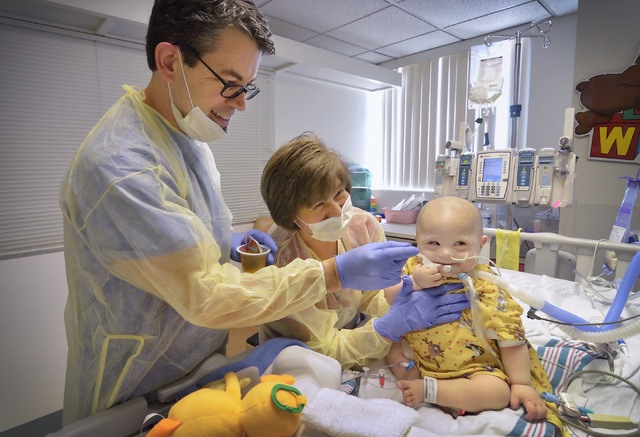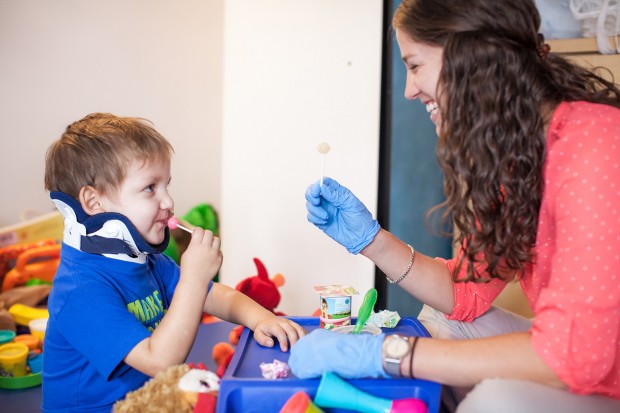What Makes a Great Speech Pathologist? Key Qualities to Look For
What Makes a Great Speech Pathologist? Key Qualities to Look For
Blog Article
How a Speech Pathologist Can Assist Improve Communication Skills
Efficient communication is a cornerstone of individual and specialist success, yet numerous individuals encounter challenges that prevent their ability to share themselves plainly. A speech pathologist is geared up to address these obstacles through targeted evaluation and treatment strategies tailored to every individual's demands. By employing evidence-based therapeutic strategies, they not just function to boost speech and language conditions but likewise improve total communicative skills. Understanding the multifaceted duty of a speech pathologist exposes exactly how their knowledge can change lives, inviting a more detailed examination of the particular methods and results related to their practice.
Understanding Communication Problems
Comprehending communication disorders is essential for identifying how they affect people' capability to express themselves and engage with others. Interaction disorders include a vast array of troubles that influence speech, language, and social communication, frequently hindering reliable communication. These problems can occur from different aspects, consisting of neurological conditions, developmental hold-ups, physical problems, or emotional issues.
Speech disorders might show up as troubles in fluency, voice, or articulation production, impacting just how words are pronounced or spoken. Language problems, on the other hand, involve difficulties in understanding or using language, which can hamper both non-verbal and verbal interaction. Social communication conditions are identified by problems in the practical facets of interaction, such as taking turns in discussion or understanding social cues.
The repercussions of interaction problems are extensive, impacting not just the individual's capacity to communicate thoughts and emotions however likewise their social relationships, educational possibilities, and total top quality of life. Awareness of these disorders can foster compassion and assistance, urging effective strategies for communication and interaction. Comprehending the intricacies of interaction conditions is a vital step in the direction of advertising inclusivity and addressing the demands of those influenced.
Duty of a Speech Pathologist
Speech pathologists frequently play an important function in identifying and treating communication disorders, employing a variety of evidence-based techniques tailored per person's needs. These professionals deal with individuals throughout the life-span, from kids with speech delays to adults recouping from strokes or terrible brain injuries. Their experience incorporates a range of interaction issues, consisting of expression, language, voice, and fluency problems.
In healing settings, speech pathologists make use of organized treatments developed to enhance interaction skills. They might carry out strategies such as speech exercises, language video games, and social communication training to promote renovations in responsive and expressive language capacities. Speech Pathologist. Additionally, they inform clients and their families regarding efficient interaction methods and adaptive methods to navigate daily interactions
Beyond straight therapy, speech pathologists team up with other medical care caretakers, educators, and specialists to guarantee a detailed technique to therapy. They advocate for clients by supplying sources and assistance, allowing people to attain their interaction goals and improve their general top quality of life. As professionals in the area, speech pathologists are crucial in promoting effective interaction, advertising self-reliance, and improving social involvement for those with communication obstacles.
Assessment and Medical Diagnosis Process
The assessment and medical diagnosis process performed by speech pathologists generally includes a comprehensive evaluation to recognize interaction problems precisely. This process begins with a comprehensive situation history, where the clinician collects pertinent information concerning the person's medical, academic, and developmental history. Understanding the context of the person's communication difficulties is essential for an exact medical diagnosis.
Following the medical history, speech pathologists use casual assessments and standard tests to examine various facets of interaction, consisting of speech audio production, language understanding, expressive language, and social interaction skills. These analyses are customized to the individual's age and particular worries, offering beneficial data for evaluation.
Observation is also a crucial element of the evaluation procedure, as it allows the medical professional to see direct how the individual communicates in natural settings. Furthermore, interviews with find more info family participants and instructors can give understanding right into the individual's interaction obstacles across various environments.
When the evaluation is complete, the speech pathologist manufactures the findings to figure out a medical diagnosis and suggest suitable interventions. This extensive analysis procedure makes sure that people get targeted assistance tailored to their one-of-a-kind interaction requirements, laying the foundation for reliable restorative approaches.
Restorative Techniques and Techniques
Countless therapeutic methods and approaches are employed by speech pathologists to attend to a selection of interaction conditions successfully. One commonly utilized approach is expression treatment, which focuses on fixing speech sounds via repetition and visual signs. This method is particularly useful for people with speech audio conditions.
Another efficient method is language intervention, which improves both responsive and meaningful language abilities. This might involve interactive activities that advertise vocabulary advancement, syntax understanding, and conversational skills. Additionally, speech pathologists usually use social skills training to boost pragmatic language capacities, making it possible for people to navigate social interactions a lot more efficiently.
Fluency shaping and stuttering alteration techniques are particularly made to assist those experiencing fluency conditions. These approaches aid customers create smoother speech patterns and take care of the physical and emotional components of stuttering.
In addition, augmentative and alternate communication (AAC) systems are utilized for people with extreme interaction problems. These systems, which can consist of motions, icons, or electronic tools, provide essential assistance for efficient communication.
Benefits of Speech Treatment

In addition, speech treatment can aid in creating essential listening and comprehension abilities, fostering far better communication in discussions. People with cognitive-communication problems can additionally profit, as treatment focuses on reinforcing memory and analytical capacities, essential for reliable interaction.
Another important element is the emotional assistance offered during therapy sessions. Speech pathologists produce a risk-free atmosphere, encouraging people to conquer anxiety and aggravation pertaining to their communication issues. This support can bring about enhanced self-confidence and overall mental well-being.
Moreover, early intervention via speech treatment can avoid additional difficulties, guaranteeing that individuals reach their complete learn the facts here now communicative possibility. In general, the benefits of speech treatment prolong past mere speech renovation, positively influencing various dimensions of life for those affected by interaction difficulties.
Verdict
In summary, speech pathologists play a vital role in resolving communication problems through assessment, medical diagnosis, and tailored restorative interventions. By utilizing evidence-based methods, these specialists boost individuals' speech and language abilities, cultivating enhanced clearness, fluency, and social communication abilities. The advantages of early treatment underscore the significance of looking for support from speech pathologists, as their proficiency can substantially boost communicative potential, ultimately causing better success in both professional and personal balls.

Speech pathologists frequently play an essential role in identifying and dealing with interaction problems, employing a variety of evidence-based strategies customized to each individual's needs. As professionals in the area, speech pathologists are important in promoting reliable interaction, promoting independence, and improving social engagement for those with interaction challenges.

Report this page